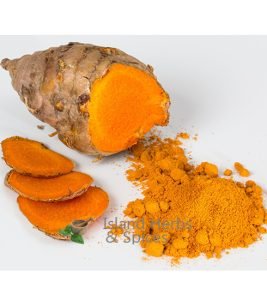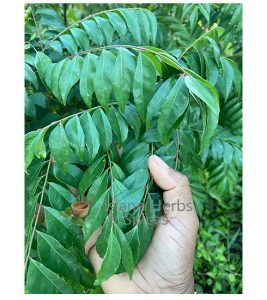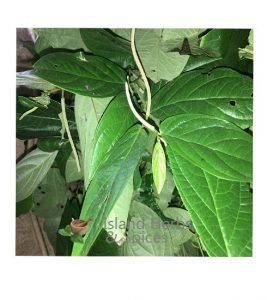The Role of Herbs in Managing Autoimmune Diseases
 Autoimmune diseases affect millions of people worldwide, occurring when the body’s immune system mistakenly attacks its own healthy tissues. Conditions like rheumatoid arthritis, lupus, multiple sclerosis, and Hashimoto’s thyroiditis are just a few examples of the many autoimmune disorders that can cause chronic pain, inflammation, and fatigue. While modern medicine provides essential treatments, many people turn to herbal remedies as complementary therapies to help manage their symptoms naturally.
In this article, we’ll explore the role of herbs in managing autoimmune diseases, the science behind their benefits, and how herbal teas can support your journey toward better health.
Autoimmune diseases affect millions of people worldwide, occurring when the body’s immune system mistakenly attacks its own healthy tissues. Conditions like rheumatoid arthritis, lupus, multiple sclerosis, and Hashimoto’s thyroiditis are just a few examples of the many autoimmune disorders that can cause chronic pain, inflammation, and fatigue. While modern medicine provides essential treatments, many people turn to herbal remedies as complementary therapies to help manage their symptoms naturally.
In this article, we’ll explore the role of herbs in managing autoimmune diseases, the science behind their benefits, and how herbal teas can support your journey toward better health.
Understanding Autoimmune Diseases
Before diving into specific herbs, it’s essential to understand how autoimmune diseases work. Normally, the immune system defends the body against harmful invaders like bacteria and viruses. However, in autoimmune diseases, the immune system malfunctions, mistakenly identifying the body’s own tissues as foreign. This leads to chronic inflammation, tissue damage, and a variety of symptoms depending on the disease. Common symptoms of autoimmune diseases include:- Chronic fatigue
- Joint and muscle pain
- Swelling and redness
- Digestive issues
- Skin rashes
- Fever
- Numbness or tingling
How Herbs Can Help Manage Autoimmune Conditions
Herbs have been used in traditional medicine for centuries due to their anti-inflammatory, immune-modulating, and antioxidant properties. By supporting the body’s natural healing processes, they can help reduce inflammation, ease pain, and improve overall well-being. Some herbs also possess adaptogenic properties, which help balance the body’s stress response—a crucial aspect of managing autoimmune diseases. Here are some key ways herbs can aid in managing autoimmune diseases:1. Reducing Inflammation
Inflammation is a hallmark of autoimmune diseases, causing discomfort and damage to tissues and organs. Many herbs contain compounds that reduce inflammation, which can help alleviate symptoms. For example, turmeric is known for its potent anti-inflammatory compound, curcumin, which can reduce swelling and pain in conditions like rheumatoid arthritis.2. Supporting Immune System Balance
In autoimmune conditions, the immune system is overactive and attacks healthy tissues. Certain herbs, like ashwagandha and licorice root, are known to modulate immune function, helping the body achieve balance by either stimulating or suppressing immune activity as needed.3. Antioxidant Protection
Oxidative stress, caused by free radicals, can exacerbate inflammation and tissue damage in autoimmune diseases. Herbs like green tea and rosemary are rich in antioxidants that neutralize free radicals, protecting cells from damage and slowing the progression of autoimmune conditions.4. Alleviating Stress and Promoting Relaxation
Stress is a significant trigger for autoimmune flare-ups, making stress management an essential part of treatment. Adaptogenic herbs such as holy basil and rhodiola help the body cope with stress by regulating cortisol levels, improving mood, and promoting relaxation.Best Herbs for Autoimmune Disease Management
While numerous herbs can support the management of autoimmune diseases, the following have shown particular promise due to their anti-inflammatory, antioxidant, and immune-balancing properties.1. Turmeric (Curcuma longa)
Turmeric is renowned for its anti-inflammatory and antioxidant effects. The active compound, curcumin, has been extensively studied for its ability to reduce inflammation in diseases like rheumatoid arthritis and lupus. Turmeric can be consumed as a tea, added to meals, or taken as a supplement. Combining it with black pepper enhances curcumin absorption, making it more effective.2. Ginger (Zingiber officinale)
Ginger is another powerful anti-inflammatory herb that can help reduce pain and swelling in autoimmune conditions. It also supports digestion, which can be beneficial for those with autoimmune disorders affecting the gut, such as Crohn’s disease or ulcerative colitis. Ginger tea is a simple and effective way to incorporate this herb into your daily routine.3. Ashwagandha (Withania somnifera)
Ashwagandha is an adaptogen, meaning it helps the body adapt to stress and balance the immune system. It has been shown to reduce inflammation and cortisol levels, making it a valuable herb for people with autoimmune diseases like multiple sclerosis and lupus. Ashwagandha is often consumed as a tea or in powdered form, mixed into smoothies or warm beverages.4. Licorice Root (Glycyrrhiza glabra)
Licorice root is another immune-modulating herb, known for its ability to balance immune function and reduce inflammation. It also supports adrenal health, which can be beneficial for those experiencing fatigue from chronic autoimmune conditions. Licorice root tea is an excellent option for daily consumption, though it should be used with caution in people with high blood pressure.5. Holy Basil (Ocimum sanctum)
Holy basil, also known as Tulsi, is revered in traditional medicine for its adaptogenic and immune-boosting properties. It helps reduce stress, promote relaxation, and regulate immune activity. Holy basil tea is a popular way to enjoy its benefits, and regular consumption can help manage symptoms of autoimmune disorders.6. Green Tea (Camellia sinensis)
Green tea is rich in antioxidants, particularly epigallocatechin gallate (EGCG), which has been shown to reduce inflammation and oxidative stress. Drinking green tea regularly can help protect against the damage caused by autoimmune diseases and support overall health.Incorporating Herbal Teas Into Your Routine
One of the easiest ways to enjoy the benefits of herbs is by drinking herbal teas. They are not only soothing and delicious but also provide a gentle and natural way to manage autoimmune symptoms. Here are some tips for incorporating herbal teas into your daily routine:- Start with a blend: You can create your own blends by combining herbs that address multiple symptoms, such as a mix of turmeric, ginger, and licorice root for inflammation and stress relief.
- Consistency is key: Herbal remedies often work best when consumed consistently over time. Drinking 2–3 cups of herbal tea daily can provide lasting benefits.
- Consult with a healthcare provider: While herbs can be powerful allies in managing autoimmune diseases, it’s essential to consult with a healthcare provider or herbalist to ensure they are safe and appropriate for your specific condition.
Conclusion
Herbs offer a natural and effective way to manage the symptoms of autoimmune diseases. By incorporating anti-inflammatory, immune-balancing, and antioxidant-rich herbs into your routine, you can support your body’s healing process and improve your quality of life. At Island Herbs and Spices, we provide a variety of herbal teas that can help you harness the power of nature in your journey toward wellness. Whether you're managing a chronic condition or simply looking to boost your health, our carefully crafted blends are designed to support you every step of the way.
Read More
Categories:
Jamaican Herbs





